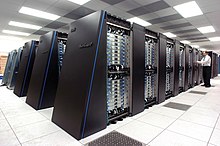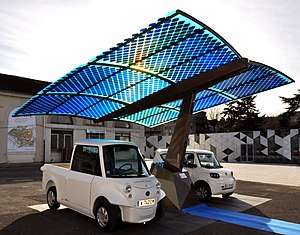DesignerBiology series
Engineering: The "Dream It, Do It" Mentality
The traditional fields of engineering (mechanical, electrical, computational, civil, etc.) have become incredibly advanced over the past century. Nowadays, if a mechanical or electrical engineer can dream it, she can do it.
But while our understanding of mechanics or electricity have become amazingly precise, we still lack this fundamental knowledge for biology. Obviously, our lag in biological understanding doesn't indicate that we haven't been interested. Instead, it underlines just how difficult acquiring concrete knowledge is in these complex biological systems. Understanding our own cells ended up being far more difficult than understanding the in deep space.
Why biology is so much harder
Traditional engineering works on basic principles that can be tweaked and applied to a wide variety of scenarios. Therefore, an engineer can imagine, design, implement, and optimize their inventions with relatively little constraint outside of cost restrictions and the laws of physics.
In biology, on the other hand, the story is very different. Even though nature has shown us that the full scope of biological invention is nearly limitless, we haven't yet cracked the basic principles that would allow for standardized manipulation of biological materials. This means that our bioengineering efforts today are still largely dependent on what already existed yesterday.
For example, scientists have been trying for years to make corn that draws it's nitrogen from the air rather than from the ground. Most scientists thought that shouldn't be too hard, because lots of plants are able to take nitrogen from the air.
Unfortunately, engineering in biological systems turned out to be much more complex. Even now, after several decades of research, we still haven't designed a crop that reliably harvests nitrogen from the air. Because of this shortcoming, the agricultural industry continues to spend billions of dollars spraying dangerous and unsustainable nitrogen fertilizers over all of our crops.
This example makes it clear how far we are from the "dream it, do it" mentality of other engineering disciplines. Here, we can imagine an innovation, and we know that it would be well within the laws of physics, but we haven't been able to put the right pieces in place. We just don't have a strong enough understanding of the fundamentals of biology to put it into practice.
The Promise of Synthetic Biology
Synthetic biology aims to change all that. By providing simpler and more precise tools to build and understand biological systems, researchers are hoping to usher in an era of biological design. The tools of synthetic biology would essentially allow us to build whatever we can imagine by harnessing the power of biochemical reactions. Then, in the same way we program computers, build robots, map out new roads, or construct bridges, we could sit down and design new, functional organisms for our use.
While programmable biosynthesis techniques are still out of reach, researchers are currently working to bring these technologies to life. Examples of simpler, workable ideas abound all over the internet. Here's a short list of examples that I plan to go into more depth on in the future.
The Hurdles for Synthetic Biology
Big questions still remain to be answered about the implications of synthetic biology and bioengineering. And no one yet knows what good or bad will come of these recent inventions. Although the general consensus is that these tools will be valuable to society, many have pointed out the need for caution in their adoption.
The list of concerns is longer than I can address here. In the future I want to write more in-depth ontechnical limitations, ethical complaints, and economic impacts. But those will all have to wait for another day.







No comments :
Post a Comment